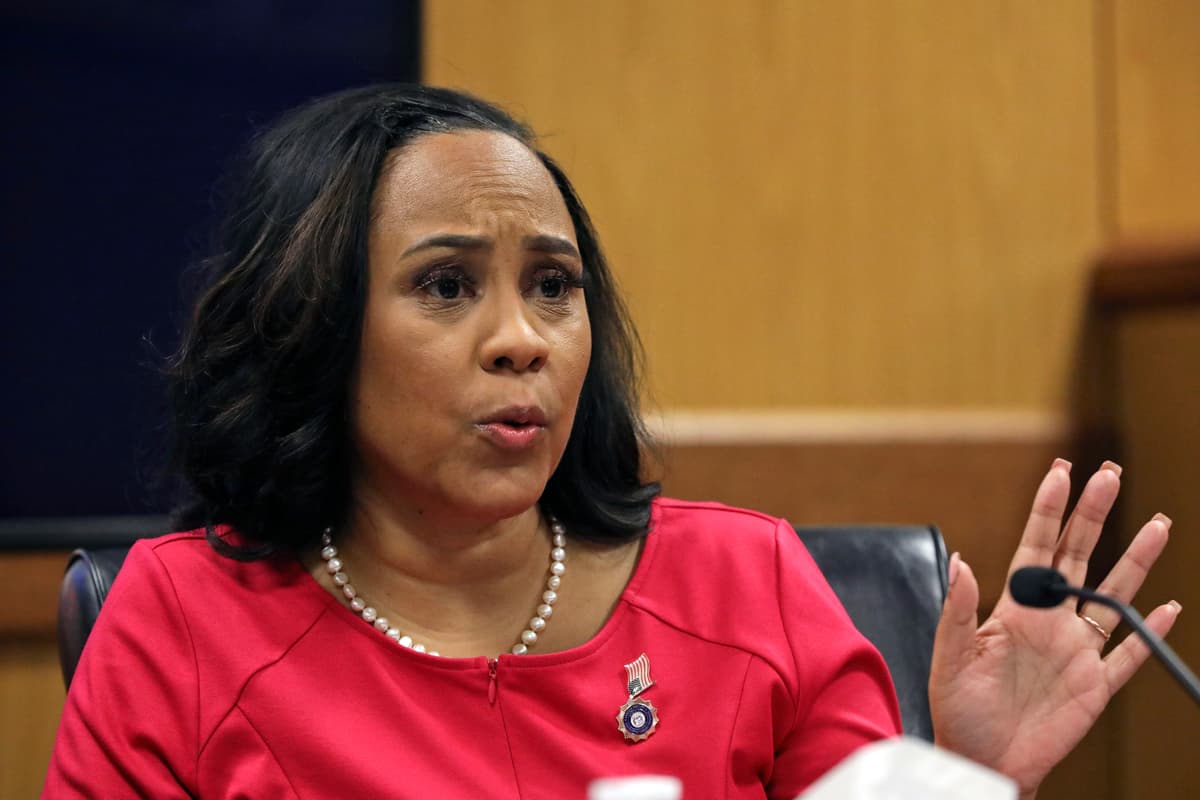Trump Eyes Big Victories Over Fani Willis, ‘Naked Emperor’ Jack Smith, Who Both Face Threat of Disqualification
Both Willis and Smith, facing grave challenges, could be removed by judges from atop the cases they indicted.

Judge Aileen Cannon’s expansion of hearings to determine whether Special Counsel Jack Smith is constitutionally appointed brings into focus the possibility that two of the prosecutors pursuing President Trump could soon find themselves disqualified.
In Georgia, the Court of Appeals has frozen District Attorney Fani Willis’s racketeering case against Trump and 18 others while it considers whether to disqualify her. The Mar-a-Lago prosecution before Judge Cannon is also indefinitely delayed while Mr. Smith’s status is determined. Trump argues that the special counsel was unconstitutionally appointed by Attorney General Garland.
A revised schedule issued by Judge Cannon on Wednesday allotted an extra day of hearings on whether the Appointments Clause precludes Mr. Smith from helming the case. That suggests that she takes the challenge seriously. So does her decision to invite outside parties, or amici curiae, to make oral arguments in court. The Supreme Court calls that practice “extraordinary.”
The precarity of these prosecutors is a remarkable role reversal. In March, the Supreme Court turned back Colorado’s attempt to disqualify Trump on the basis of Section Three of the 14th Amendment, which bars insurrectionists from holding office. A unanimous high court held that the Colorado supreme court exceeded its authority when it ruled Trump ineligible for office. During oral arguments, Justice Elena Kagan wondered “why a single state should decide who gets to be president of the United States.” Chief Justice Roberts reflected that the “whole point of the 14th Amendment was to restrict state power.”
Now, the 45th president is the one whose arguments to disqualify are gaining traction. In a brief supporting that position filed before Judge Cannon, Attorneys General Meese and Mukasey argue that because Mr. Smith is not “clothed in the authority of the federal government,” he is a “modern example of the naked emperor. Improperly appointed, he has no more authority to represent the United States in this Court than Bryce Harper, Taylor Swift, or Jeff Bezos.”
In testimony before the House Judiciary Committee, the current attorney general, Mr. Garland, this week maintained that “there are regulations under which the attorney general appoints special counsel. They have been in effect for 30 years, maybe longer, under both parties.” Legislation authorizing independent counsels expired in 1999. It was replaced by what are known as the “Reno Regulations,” after a former attorney general.
Representative Thomas Massie, though, was not satisfied, responding that “none of those statutes, nor any other statutory or constitutional provisions, remotely authorized the appointment by the Attorney General of a private citizen to receive extraordinary criminal law enforcement power.” At the time of his appointment, Mr. Smith was prosecuting war crimes at the Hague, a role that did not require the confirmation demanded of United States attorneys.
The challenge to Ms. Willis centers not on how she was appointed — district attorneys in Georgia are elected — but rather on how she comported herself. Trump and his co-defendants contend that her secret romantic relationship with her special prosecutor and former boyfriend, Nathan Wade, amounts to a conflict of interest. Without disclosing the romance, Ms. Willis’s office paid him $650,000, and the two took trips together.
Trump et al. also argue that Ms. Willis’s statements outside of court amount to “forensic misconduct,” or an unlawful effort to poison the jury pool. They cite her comments, to the congregants of a historic Black church, that her foes — and possibly her defendants — are “playing the race card” in their criticism of her. Fulton County at downtown Atlanta, where the trial will be held, is a majority-minority district. Ms. Willis has also suggested that scrutiny directed toward Mr. Wade is motivated by race.
Judge Scott McAfee decided to allow Ms. Willis to continue atop the case, but he appeared sympathetic to the arguments for her removal. He characterized her behavior as the type that emits an “odor of mendacity,” called her comments “legally improper,” and faulted her with producing a “significant appearance of impropriety.” He decided that Mr. Wade’s departure was sufficient to safeguard the defendants’ rights to a fair trial.
The Georgia Court of Appeals could concur, but it decided to grant Trump’s request for review and to freeze the proceedings during the pendency of the appeal. That suggests that its judges are at least prepared to contemplate reversing Judge McAfee. As is typical in Southern states, while Fulton County’s big-city politics — Ms. Willis is an elected district attorney — are overwhelmingly Democratic, the state-level government in Georgia is dominated by Republicans. The three judges on the Georgia Court of Appeals who will hear Trump’s appeal were appointed by Republican governors.
Oral arguments are tentatively scheduled for October 4. By the time autumn arrives, Mr. Smith could already be mounting his own appeal — of a disqualification ruling from Judge Cannon.

